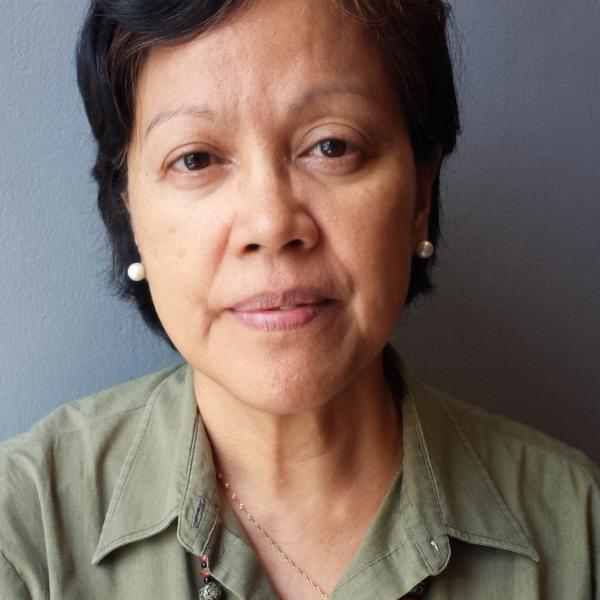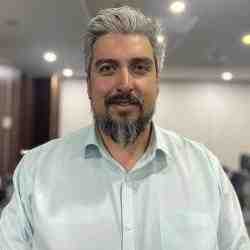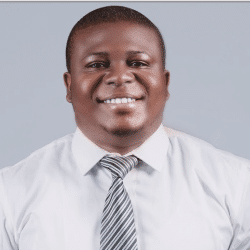Introduction
Cristina Liamzon is building a global community of empowered Filipino migrant workers through a leadership and education program that encourages them to become drivers of change in the Philippines or in their host countries.
The New Idea
In many countries around the world, Filipinos compose some of the largest migrant worker communities. More often than not, Overseas Filipino Workers (OFWs) are employed as low-skilled labor despite having relatively high levels of education. Financial challenges in the Philippines force these workers to spend many years separated from their families. These personal and economic challenges lead to low self-esteem and the disempowerment of OFWs. They are unable to recognize the significant contributions they are making, not only to their families, but to the Philippine economy and society as well.
The Philippine embassy and citizen organizations abroad usually offer financial literacy classes or personal counseling to assist OFWs. These efforts have had mixed results. Tina Liamzon realized that the key to long-term impact was to be able to transform the mindset of OFWs from one of self-pity and low self-esteem to that of being proactive citizens. She and her husband, and their colleagues in the LSE Migration and Development Consortium, enable them to become part of a larger movement and vision for driving change in their own lives and in their community. The Leadership and Social Entrepreneurship (LSE) Program combines financial literacy training, personal counseling, leadership skills and social entrepreneurship classes to achieve a more holistic transformation of OFWs. The migrant workers enrolled in the program learn to address their personal and financial challenges with entrepreneurial creativity rather than become passive recipients of assistance and services.
Perhaps the most crucial lesson for empowerment comes in the manner in which the LSE programs are designed and conducted. Over six months, the migrant workers help coordinate the classes themselves and arrange for continuous mentorship and support for alumni. During the sessions, the migrants explore how they can address social problems in both their host country and the Philippines with many students choosing to continue their initiatives after graduating from the program. Completely volunteer-run, the LSE program merges the resources of the Filipino diaspora, academic institutions and the local Philippine embassy or consulate and overseas labor offices.
The sense of ownership and empowerment of the students has led to a very active alumni community. Since 2008, the LSE Program has been active in 5 Italian cities (Rome, Naples, Milan, Florence, and Turin) and has expanded to Hong Kong, Dubai, Paris, Brussels, The Hague and Macau. Over 750 migrants have graduated from the program worldwide. The alumni have also encouraged their own families in the Philippines to participate in a parallel local program. The first LSE Programs within the Philippines, called FLSE, have been organized in Manila, Davao, Iloilo, and Cagayan de Oro City.
The Problem
According to a report by the International Organization on Migration (IOM), over 10 million Filipinos – more than 10% of the Philippine population – live and work abroad. Close to half of these migrants are temporary contract workers. 80% of OFWs are working in the service and production industry, mainly as domestic workers, laborers, seafarers and factory workers although there is an increasing number of OFWs in the field of Nursing.
A general trend among OFWs is the mismatch between occupation and education levels. It is common for OFWs to have completed at least a high school level education, with many even having college degrees. However, majority are compelled to take less skilled occupations abroad due to the lack of economic opportunities in the Philippines. Despite higher income levels, studies have shown that OFWs struggle to build longer-term financial stability and break free from the cycle of poverty and migration.
More than 23% of Filipino households receive remittances from OFW family members. However, most of these amounts go towards supporting the family’s daily consumption and basic needs, with the family members having built a dependency on the OFW as the main breadwinner for the home. Although most OFWs are on contracts of two years or less, the tendency to renew their contracts and find other ways to extend their stay abroad is high.
Aside from the difficult working conditions, OFWs also experience emotional and psychological stress. Many express feelings of isolation and helplessness as they face difficulties in adjusting to the language and culture of their host countries. Extended periods away from home place a strain on personal relationships and family dynamics – a particularly stressful element for Filipinos who highly value close family ties. In many countries, there is also a social divide between OFWs who work in the service and labor industries and their fellow Filipinos who are professionals, managers, and expats in the host countries.
A number of initiatives led by Philippine government agencies and civil society groups aim to address the problems that OFWs face. These commonly take the form of one-off financial literacy seminars, entrepreneurial or technical skills training, personal counseling sessions, or workshops on migrants’ rights. There is also the establishment of general OFW “help desks” or legal services for those in crisis. These initiatives are generally positioned as assistance programs or services that are offered to OFWs by other organizations. The challenge is that OFWs have very limited resources and time off from work to attend these activities. It becomes difficult to sustain the impact of these programs and help the OFWs translate the classroom or workshop-based learning into action and personal transformation.
The Strategy
The Leadership and Social Entrepreneurship (LSE) Program aims to empower OFWs, especially those who are working in what are often referred to as 3D jobs (Dirty, Demeaning and Dangerous/Difficult). LSE’s primary objective is to help marginalized OFWs gain self-awareness and self-confidence to become agents of change and social transformation. As part of this mind shift, the program also provides the OFWs with the technical skills and tools to improve their economic security and contribute to their host countries and the Philippines. As Tina and the consortium expand the LSE program to other countries around the world, they are building a movement that is characterized by collaboration and volunteerism. As part of the LSE’s strong community culture, the participants are encouraged to use what they have learned from the program to help other OFWs.
When setting up a new LSE class for Filipino migrant workers, Tina first looks for a strong group of volunteers who will act as the anchor and secretariat for the program in their city. Since the group tends to be a mix of migrant workers and Filipino expats, the LSE becomes a platform for these two formerly disconnected groups to interact. Rather than position the program as an advocacy or service freely offered to OFWs, the LSE is presented as a valuable opportunity that will need the Filipino community’s collaborative efforts. The volunteer organizers must first show demand for the class by securing commitments from a minimum of 40 migrant workers interested in becoming students. All students are required to pay a registration fee although the amount is dependent on the OFWs’ occupation and income level. Tina’s group also helps the local volunteers secure the consent and support of the Philippine embassy in their area.
The LSE classes are usually structured as twelve full-day sessions held over six months. The first 4 sessions are focused on leadership and self-awareness. While these foundations are being laid, the program focuses another 4 sessions on the more technical skills of financial literacy with some additional course work being done online. The last 4 sessions expose the students to social entrepreneurship and invite them explore their potential as change agents in society. Students either build a social enterprise business plan or develop a community project which shows how they intend to “pay forward” to their community what they have learned from the course. In building LSE courses in other cities such as Dubai and Hong Kong, Tina and the consortium believe that they must be open and flexible about the content. They take into account the different OFW profiles and socio-economic conditions in each country.
After graduation, the alumni receive continuous mentoring from the LSE community and have the option to join a practicum course where they can further develop their social change projects. For many OFWs, receiving an executive education diploma from the Ateneo School of Government is a major achievement as Ateneo is one of the Philippines’ most prestigious universities.
Rather than duplicate existing programs, Tina has united a strategic group of stakeholders (the LSE Migration and Development Consortium) who are already working on migrant issues. The content and speakers for the LSE course come from this consortium, with each institution contributing its resources. This group includes OFSPES (a Philippine and Italian-based CSO focused on migration and development), SEDPI (a private organization which provides financial literacy training for migrants), UGAT Foundation (a Jesuit-apostolate organization specializing in psychosocial counseling ), and the Ateneo School of Government (the academic institution which grants an executive education certificate to LSE graduates). Local migrant-focused CSOs and the Philippine Embassy/Consulate and labor offices are key organizing partners on the ground as well.
The OFW empowerment and ownership of the LSE program can be seen through their commitment to the classes and their engagement as alumni. The LSE program constitutes a significant investment of time since many OFWs only have, at most, one day of rest per week. Yet they choose to prioritize the classes and even contribute by providing food for session breaks and lodging for visiting speakers. LSE connects alumni around the world through social networking sites which have led to continued discussions and peer mentorship. In most cases, the LSE graduates actively recruited the next batch of migrant workers to enroll in the course. The active alumni network has also led to a crucial development in the LSE program – the creation of LSE courses within the Philippines. LSE graduates are helping to organize parallel classes in their home towns in the Philippines to encourage their family members and friends to become changemakers as well.
Tina is strategically spreading the LSE program to these countries which have large OFW populations. Sixty-seven percent of OFWs are working in the Middle East, while other top destination countries include Hong Kong and Singapore. This led to the creation of LSE classes in Dubai, Hong Kong and Macau.
The Person
As a youth leader, Tina had been active in social issues during her high school days. This continued in the 1970’s as student groups and civil society fought against the corruption and abuses of the Marcos regime. After university, Tina decided to join an Asian network of civil society organizations that were focused on rural development and agrarian reform. Based in Bangkok for several years, she believed in the network’s mission but felt the desire to move from regional level engagements to a more local focus. She moved back to the Philippines and helped to formalize the network of rural development-focused CSOs called the Philippine Partnership for the Development of Human Resources in Rural Areas (PhilDHRRA). Tina helped form a national federation of peasant organizations that were connected to these CSOs. She then facilitated, with other CSOs, the creation of a congress for people’s agrarian reform which brought together peasant groups across the political spectrum.
In 1990, Tina moved to Europe as her husband accepted a position based in Italy. For the first few years in Rome, she took on various development positions that were aligned with her passion for agrarian reform, food security and sustainable livelihoods. Although her work with UN agencies and other international development organizations paid well and allowed her to meet like-minded people, she felt disconnected from the realities of communities on the ground. In the international development and advocacy work, she found herself going from one meeting to another but unable to effect substantial changes on the ground. This is when she began to look closer at the issues affecting migrant communities in Italy.
Tina had moved to Europe for what she thought would be a short-term assignment. Her stay extended many years but it was this experience that exposed her to the significant challenges that migrant communities face. During her free time, she had been active with a church group that was assisting several Filipino migrant groups. She built relationships with the migrant workers and witnessed firsthand their struggles, from financial difficulties to the strain on their families. This was the spark that led her eventually to create and devote her time to the Leadership and Social Entrepreneurship program.




